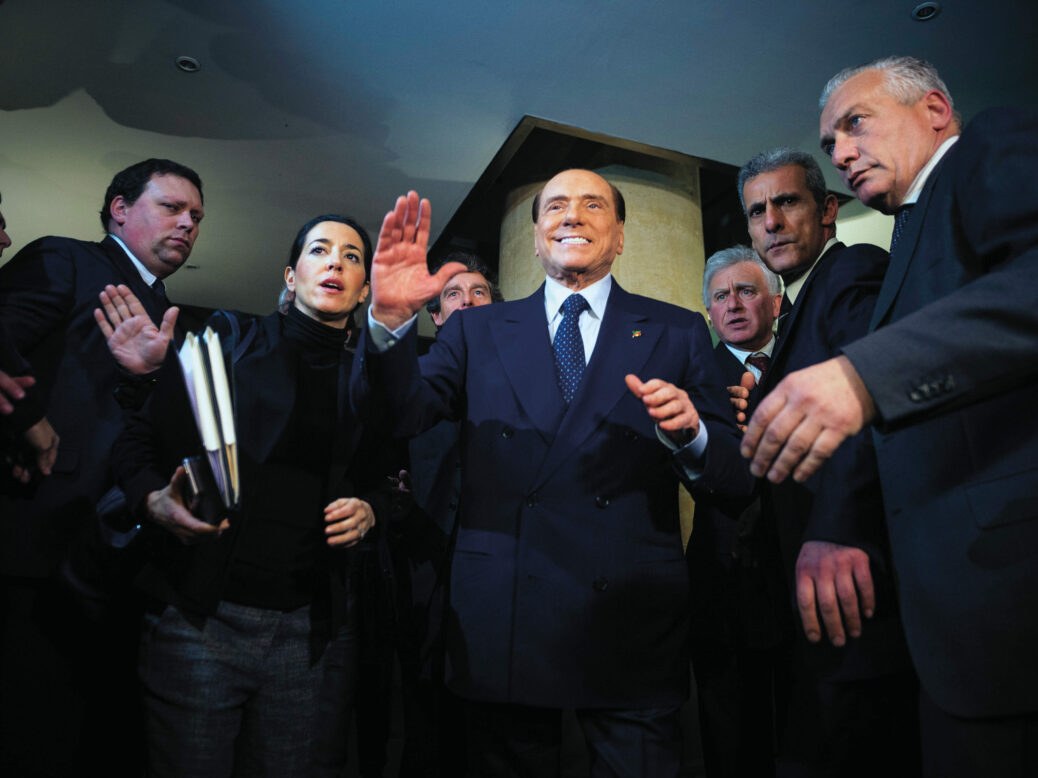
Italians are weighed down by debts and doubts, as are all Europeans. With high levels of tax evasion and political corruption, the Italian nation-state is under huge strain. And after Eurosceptic, anti-establishment parties triumphed in the recent general election, the shape of its next government remains unclear. Following the Arab spring of 2010 the peninsula was flooded with refugees from Libya and parts of sub-Saharan Africa. Silvio Berlusconi, the slyboots media tycoon, has based his return to politics on a promise to curb immigration and instil pride in being part of Mussolini’s vaunted razza italiana – the “Italian race”.
Italy is a land of mixed bloods and ethnicities. Albanians, Normans, Arabs, Greeks and Germanic langobardi (“long-beards”, later Lombards) have intermarried to form an indecipherable blend of Italic peoples. The struggle towards nationhood in the mid-19th century known as the Risorgimento was bound to be problematic. Italy is divided by an ancient north-south line. Some northern Italians speak of Sicily as an African darkness – the place where Europe ends.
A brilliant politician, the 81-year-old Berlusconi is symptomatic of the “anti-elite” animus now affecting much of the western world. As the rise of the Five Star Movement demonstrates, the Italian left is quite out of touch with the classe operaia (working class), who must bear most of the strain on resources caused by the 600,000 immigrants estimated to have entered Italy illegally over the last four years.
Like most Italian leaders, Berlusconi has strongman tendencies. His populist Forza Italia (Let’s Go, Italy) came to power in 1994 as an alternative to established party systems. His pretence to youthfulness – the doctored black hair, the pearly teeth – is in its own way quite fascista. Youth was a vital focus of Mussolini’s 23-year dictatorship when bare-chested young men were expected to display feats of physical daring – ardimento – and glorify the manful Fascist soul. “Luckily I’m still young,” Berlusconi often says, half believing it. His ten years in power provided lurid entertainment for the masses (boobs, lottery, football), as well as patronage for family and friends. Though Berlusconi cannot officially become prime minister owing to a tax fraud conviction, he is likely to play a decisive role as power-broker in Italy’s new coalition government.
The Italian Republic was founded in 1946, after the pro-fascist royal family abdicated. Since then, the so-called values of the Risorgimento – unity, liberalismo – have not been realised. They were dealt a blow by Berlusconi himself, who now dominates Italy almost as effectively as Mussolini did. Through his television channels he spread propaganda for Forza Italia and built a “videocracy”. Italy’s current economic plight stems in part from Berlusconi’s years in government. Unemployment, at 11 per cent, is among the highest in the eurozone; young Italians complain that they are unable to find work without raccomandazione (political connections). How long before Italy becomes a second Greece? The current discontent is felt especially by the older generation. They know about Mussolini’s murderous 1938 legislation against Italian Jewry and have some sense of what an alternative to democracy might mean. Italy’s fascists were not put on trial but rehabilitated into the Christian Democrat Party.
Berlusconi is not a dictator. He operates through the kickback culture known as la bustarella (the little envelope). But he has made Italy prey to nefarious business interests and neo-fascist tendencies. Blackshirt movements such as CasaPound, founded in Rome in 2003 (and named after the anti-Semite Blackshirt poet Ezra Pound), may not have brought Mussolini back into the mainstream, but they are part of a wider tendency that speaks of the fascist past as a romantic adventure. Mussolini’s birthplace of Predappio is currently awash with Fascist trinkets and pseudo-Roman gewgaws. Young Italians are wary of democracy. Fascism offers them a “virile” alternative to the discredited dream of multiculturalism. CasaPound members refer to themselves as arditi (“daring ones”) and greet each other with the stiff-armed Roman salute.
Italy’s neo-Fascist Movimento Sociale Italiano or MSI was the largest party of its kind in western Europe when I lived in Rome in the mid-1980s. In the Roman borgate (townships) the party’s symbol of a tricolor flame was spray-gunned onto tenement walls. The MSI’s ambition of entering parliament was realised in 1994 when, having become the National Alliance, the party formed a section of Berlusconi’s first coalition government. Little has changed.
Undue pessimism, though, is misplaced. Italy changes governments often (roughly every five years). And there is nothing new in the far-right’s presence: extremist forces have allied themselves with Berlusconi since his political adventure began in the early 1990s following the collapse of the corrupt Christian Democrats and Socialists.
Italy’s salvation will not come with a sleek and smarmy redeemer like Berlusconi, but with the country’s many medium-sized firms and its surprisingly stable banking system. Unlike their equivalents in boom-bust Britain and America, Italian banks are not prone to flighty economics. Italian capitalism has rarely been about “punters”; family-run firms and the local banks that support them thrive on budgetary stringency. Decent, law-abiding Italians have a famed ability to make the best of a bad situation, and are gifted when it comes to crisis management. (“How’s your crisis going?” President Reagan asked an Italian politician in 1985. “Very well, thank you,” came the reply.) The Berlusconi carnival chariot will lurch on chaotically, the Italian way.
Ian Thomson’s books include Primo Levi: A Biography (Vintage)
This article appears in the 07 Mar 2018 issue of the New Statesman, The new cold war





